How to implement Cookie Consent for GTM & Google Analytics in Magento Under GDPR?
Implement cookie consent for GTM & GA4 in Magento under GDPR. Step-by-step guide using Google Consent Mode v2 to avoid fines and maintain analytics.
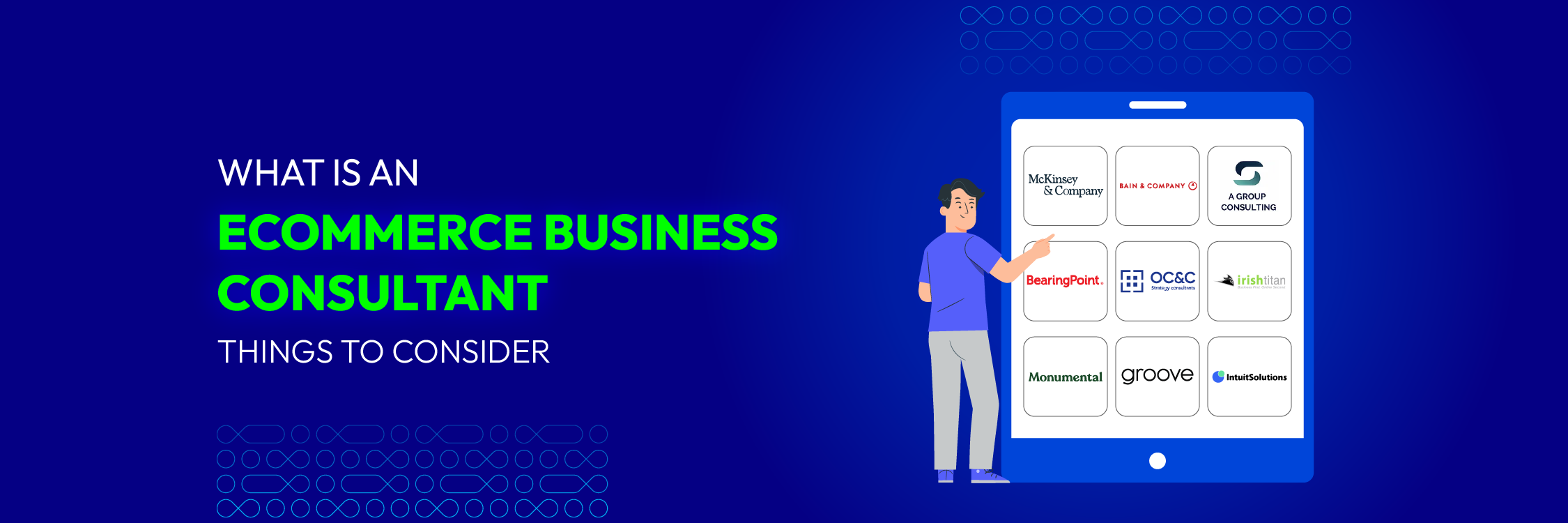
Businesses often enlist the services of ecommerce consultants for diverse reasons, and they can prove to be a valuable solution for your specific needs. An ecommerce business consultant brings a range of skills that can be strategically utilized for particular projects or during defined time periods.
To fully understand the scope of what a consultant or consulting firm can offer your ecommerce business, let’s delve into the multitude of services they provide, what to consider for choosing and our shortlisted 10 ecommerce business consultants.
An expert in ecommerce, often referred to as an ecommerce consultant, is an external professional knowledgeable about the challenges confronting online stores. Their role involves suggesting enhancements to boost the overall performance of ecommerce operations.
Numerous ecommerce consultants leverage their extensive firsthand experience to provide guidance to merchants. Some specialize in particular industry sectors and may function as independent contractors, actively contributing to the development of solutions.
Despite Amazon commanding 37.6% of ecommerce market value, there remains significant space in this industry for small or expanding businesses. An ecommerce business consultant can provide businesses with advice on a variety of ecommerce topics, which include but not limited to:
Product development and web design
Advertising plan
Operations and logistics
Multiple selling channels
New technology and physical retail
Regulation and compliance
The approximate price range for hiring an ecommerce consultant falls between $25 and $300 per hour. Certain consultants may opt for monthly retainer fees, offering a predetermined number of hours or deliverables in return.
Consultant fees fluctuate based on factors such as project size, complexity, geographical location, and industry. Seasoned consultants typically charge higher rates than junior counterparts, yet they may propose strategies that yield greater long-term benefits.

To improve the conversion rate of your store, an ecommerce business consultant may propose enhancements to the user experience (UX) to facilitate a smoother shopping process for customers.
The objective of optimizing the conversion rate is to minimize obstacles in the customer’s journey towards making a purchase. ecommerce UX encompasses the entire experience a visitor has in your store, spanning from browsing to adding items to the shopping cart and ultimately completing the checkout.
Consultants will examine your website thoroughly, pinpointing areas with subpar UX that might cause frustration for customers and result in abandoned shopping carts.
They may suggest modifications to the checkout process, such as incorporating a one-step checkout option. Additionally, they might advocate for the implementation of a live chat feature at strategic points where customers could benefit from assistance.
Ecommerce businesses and consultants often prioritize customer acquisition as a key area of focus. Navigating the challenges of reaching new markets and audiences can be daunting, and this is where ecommerce consultants play a crucial role by offering innovative ideas and strategies to expose your business to new customers. To enhance your business’s growth in niche markets, it’s essential to adopt tailored strategies, from optimizing conversion rates to personalizing communication. If you’re in the recruitment industry and looking for effective ways to expand your client base, check out these essential steps on how to get clients for recruitment agency. Understanding industry-specific tactics can significantly impact acquiring dedicated clients.
These consultants can assist in initiating and managing targeted marketing strategies, assessing and optimizing digital advertising channels, creating and overseeing sales funnels, and tapping into new customer pools through the strategic use of applications.
Ecommerce business consultants play a crucial role in evaluating and optimizing your inventory, specifically in identifying products with the potential to earn profits. Tasks such as product development, exploring new product opportunities, and brainstorming innovative product ideas are all areas where you can leverage the expertise of a consultant.
For instance, if your shampoo business has reached a sales plateau, and you’re considering expanding by introducing a conditioner, an ecommerce business consultant can thoroughly assess this idea. They may conduct market research to determine the viability of such an expansion and might propose alternative growth strategies, such as enhancing your existing shampoo product.
Furthermore, consultants can delve into pricing strategies, pinpointing areas where profit margins can be boosted or identifying price points that may be negatively affecting conversions. When introducing a new product, consultants can assist in finding the right balance between ensuring profitability and making the product affordable for your target audience.
Ecommerce consultants specialize in enhancing a business’s efficiency and profitability through strategic measures. They negotiate favorable contracts, reducing costs for inventory, shipping, and software. By conducting process audits, consultants identify and eliminate inefficiencies, streamlining operations.
Also, they introduce task automation tools to enhance workflow efficiency. Ecommerce consulting services offer cost-effective insights to optimize cash flow, including strategies for digital marketing, social media, and ecommerce platforms.
Consultants also create growth roadmaps, providing a clear path for business expansion. In essence, their expertise is dedicated to making comprehensive improvements in business operations and profitability.
When necessary, a consultant can assist you in negotiating with suppliers to secure improved deals, different product offerings, or a more efficient delivery schedule based on your specific requirements. Supplier-related challenges often stem from the source of their products, an area where the consultant can also provide assistance.
An ecommerce consultant brings an external viewpoint to your business, identifying novel opportunities for business development. They can formulate a roadmap guiding you towards obtaining new certifications or undertaking courses that enhance both your ecommerce store and your overall business.
Immersed in day-to-day operations, it’s challenging to think innovatively. While focus is essential, it can lead to missed opportunities. An ecommerce consultant offers an informed, unbiased perspective on your operations.
Outsourcing tasks to a consultant frees up time for impactful responsibilities. A skilled ecommerce business consultant ensures your business is well-managed, allowing you to concentrate on essential aspects without investing time in their tasks.
Not every business may require the services of an ecommerce business consultant, and the timing might not always be ideal for such a hire. Consider the following factors to determine if proceeding with the hiring process is appropriate:
Clearly outline the goals you intend to achieve with the consultant. Having a well-defined purpose helps in selecting a candidate whose skills align with the job requirements. Establish measurable success metrics to set expectations from the outset.
Typically, ecommerce consultants are brought in for specific projects or tasks predetermined before their hiring. They often complement existing roles or handle work that doesn’t neatly fit within established roles. Assess how the consultant’s workload may impact the team’s capacity.
Set a budget range for the consultant, considering factors such as project scope, timeline, and contract duration. This financial parameter will influence the selection process, ensuring alignment with your financial resources.
Choose a consultant who not only comprehends your company’s vision, brand, and customer base but also values and respects your organizational culture. While an external perspective is valuable, it’s crucial for the consultant to establish a collaborative and understanding relationship with your team.
Seek an agency with satisfied clients willing to share their experiences. Testimonials, case studies, or client feedback during the vetting process can provide insights into the agency’s ability to deliver results and maintain positive client relationships.
Review the consultant’s or agency’s portfolio to gauge the quality and relevance of their previous work. Look for professionals with expertise in your industry or niche, or whose work resonates with your expectations.
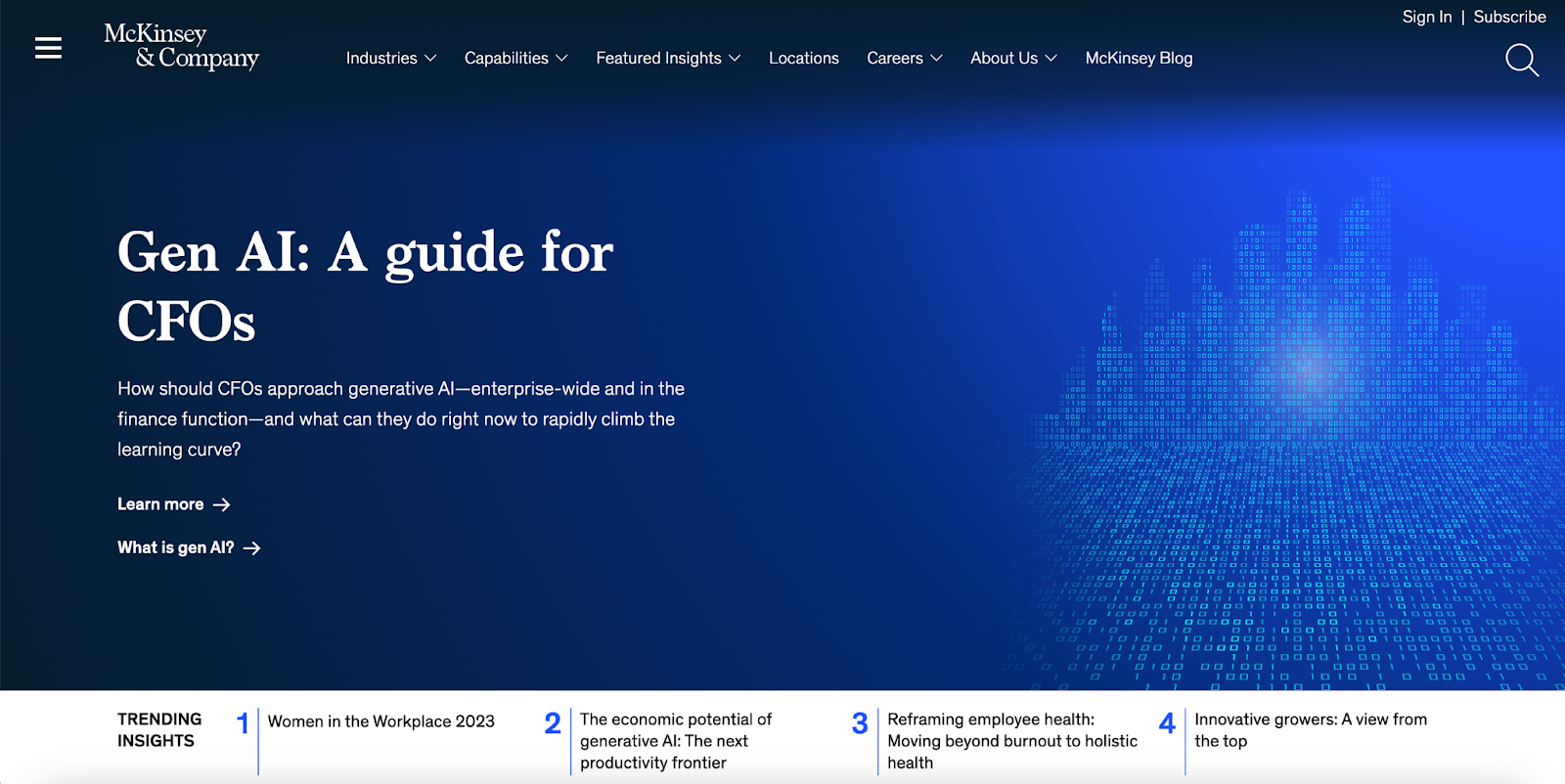
McKinsey & Company, a sizable consulting firm with a broad range of expertise, offers specialized services through McKinsey Digital. This branch concentrates on various online aspects, encompassing digital marketing, operations, and analytics.
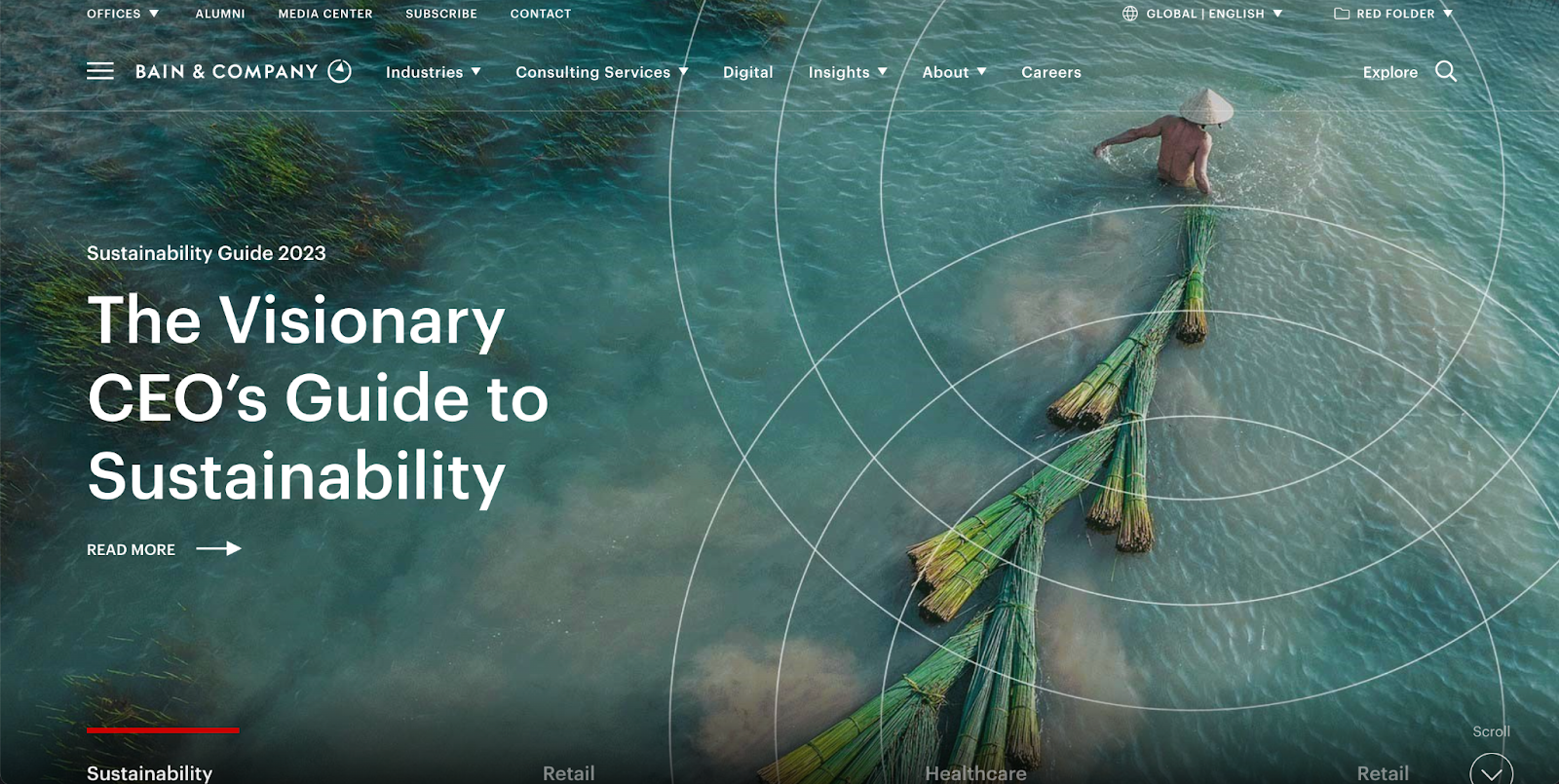
Bain & Company, headquartered in Boston, is a prominent global consulting firm with a widespread presence through various offices. The firm has an extensive track record of working with a diverse range of businesses, spanning consumer products, fashion and luxury, and grocery stores. This includes collaborating with companies that operate both online and physical storefronts.
Notably, Bain & Company also possesses specialized expertise in ecommerce tailored for B2B companies, particularly those engaged in selling products or services to other businesses. This signifies their capability to address the unique challenges and strategies relevant to the B2B ecommerce landscape.

A Group Consulting specializes in essential marketing domains such as pay-per-click advertising (PPC), search engine optimization (SEO), and various operational aspects, including legal consulting for business registration. The company has a history of collaborating with significant media and recruitment firms.
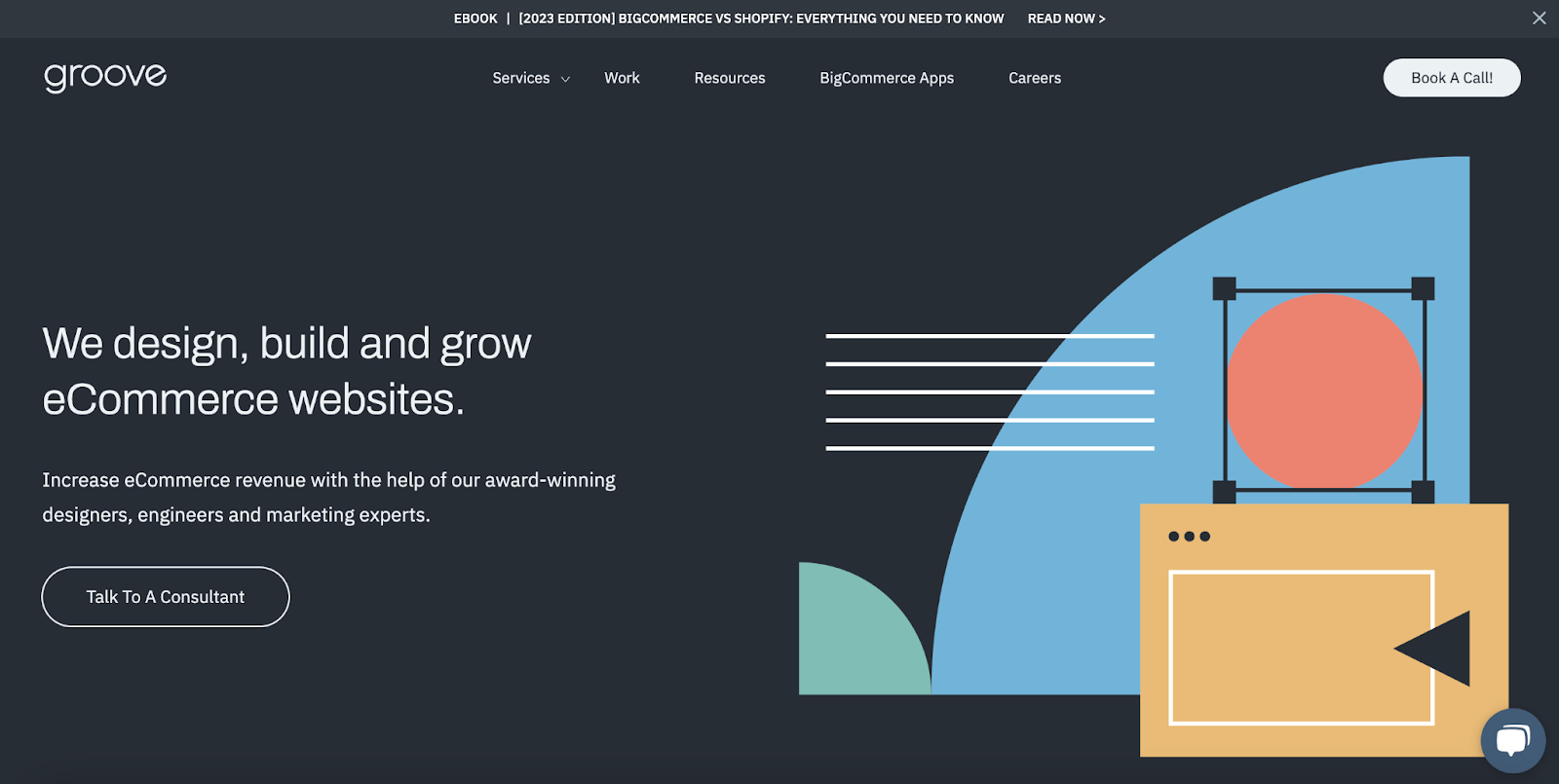
Groove Commerce specializes in assisting businesses in the development and expansion of their websites. The company offers consulting services in SEO, design, and email marketing, with a specific focus on ecommerce brands. Their expertise extends to various industries, including clothing, automotive, food and beverage, as well as toy retailers. Groove Commerce is positioned to support businesses in optimizing their online presence and driving growth in the digital marketplace.
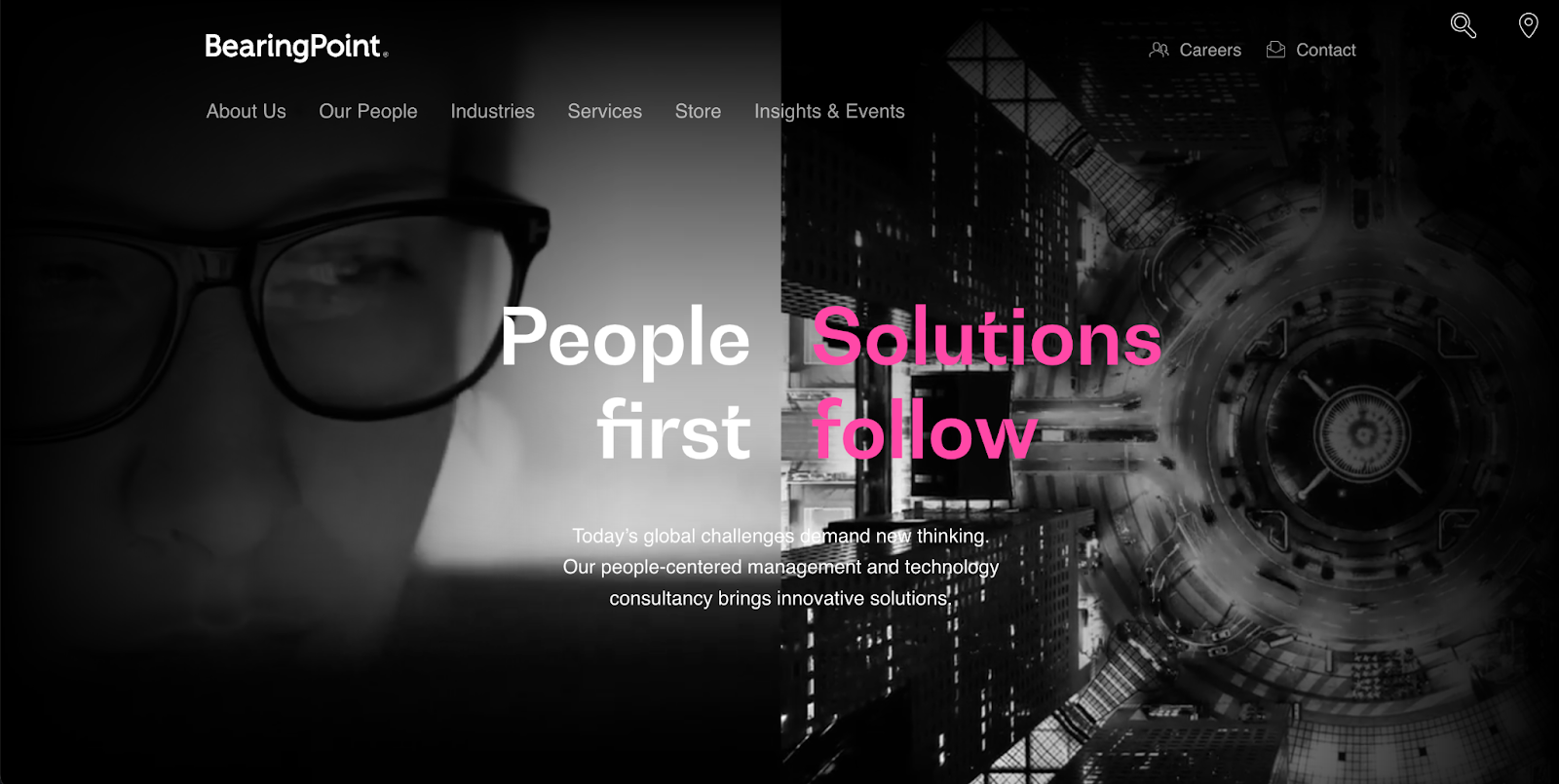
BearingPoint, a global consulting firm, boasts expertise across nearly every business function. Within its capabilities, BearingPoint houses ecommerce strategy specialists with a focus on consumer goods and retail. Their services include assisting in the implementation of new digital strategies, launching omnichannel marketing initiatives, enhancing user experience through effective categorization, and facilitating the adoption of new IT processes.

OC&C Strategy Consultants is known for its expertise in consumer goods, retail, and digital marketing. The consultancy provides valuable guidance to ecommerce clients in various areas, including business growth, branding, and positioning.
Additionally, OC&C specializes in specific tasks such as channel expansion, development of private label products, and navigating acquisitions. This comprehensive range of services makes OC&C Strategy Consultants a valuable resource for ecommerce businesses seeking strategic advice and support.
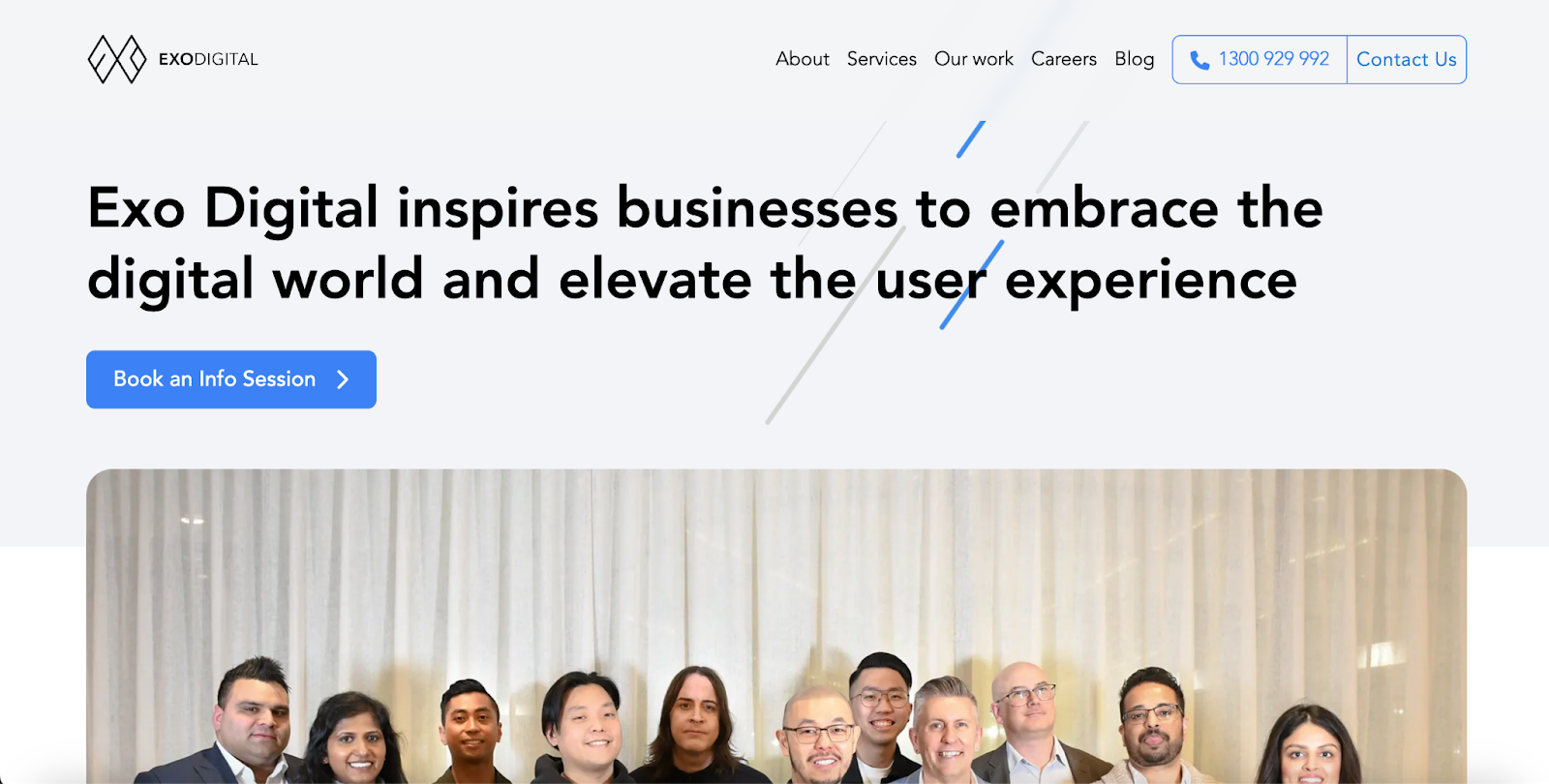
Exo Digital, headquartered in Australia, is a consulting firm that specializes in crafting immersive digital transformation experiences. Their core areas of focus include UX and UI design, development of web and mobile applications, and the design of customer experiences. Additionally, Exo Digital aids clients in researching and validating new products and business ideas, contributing to a comprehensive approach to digital innovation.
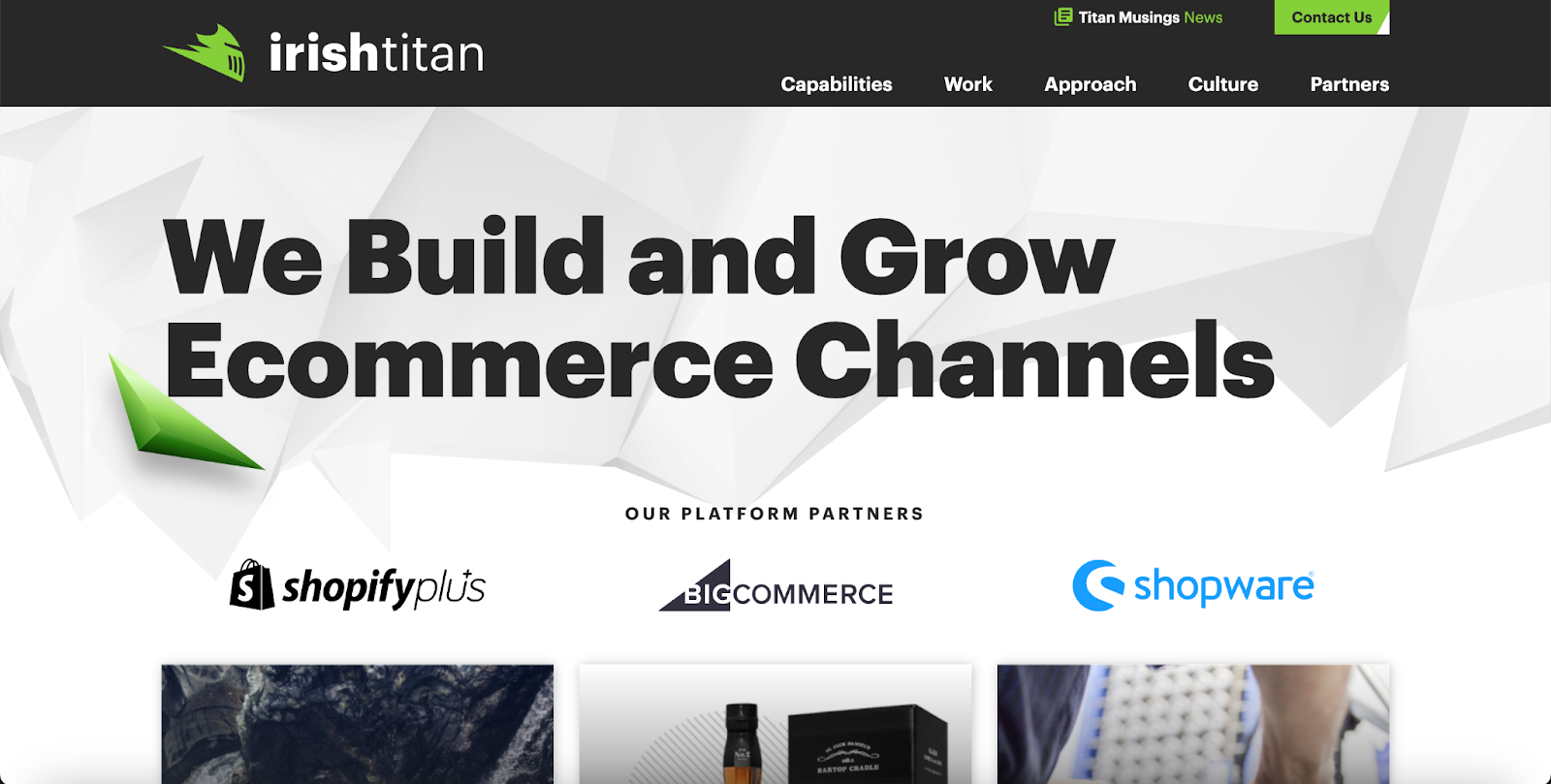
Irish Titan is a full-service ecommerce agency with proficiency in Shopify and other ecommerce platforms. The agency has a proven track record of assisting merchants in various industries, including technology, farming, footwear, and car maintenance, in the design, development, and growth of their online stores.
Irish Titan’s expertise extends across multiple sectors, making it a versatile partner for businesses looking to establish and expand their presence in the digital marketplace.
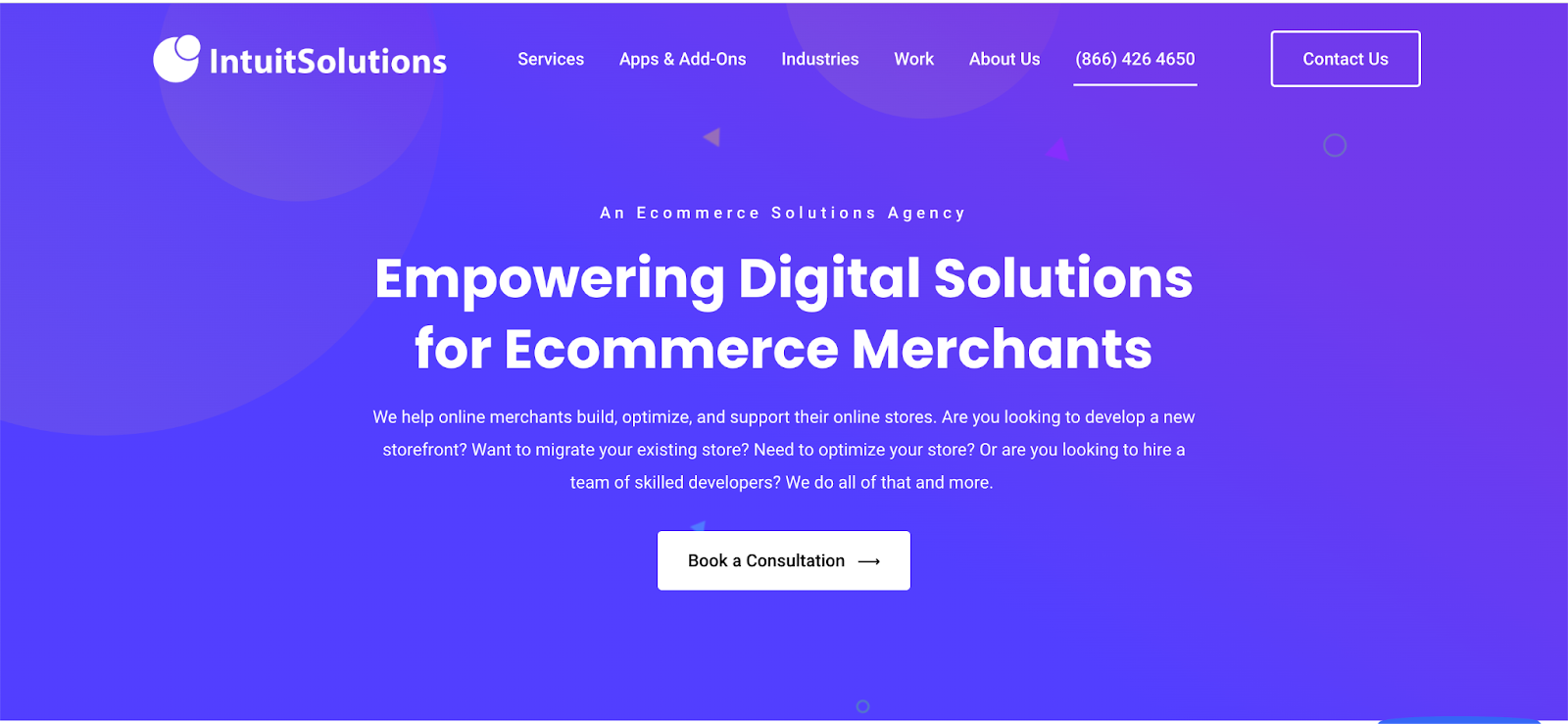
IntuitSolutions specializes in providing support to ecommerce clients utilizing the BigCommerce platform. The company has a track record of assisting numerous merchants across diverse industries, including automotive, pets, CBD, tech, and beverage. IntuitSolutions helps these businesses in the construction and optimization of their websites, tailoring their services to the specific needs and functionalities of the BigCommerce ecommerce platform.
Engaging an ecommerce business consultant can provide substantial benefits for your business.
Before making a decision, assess your current business requirements—whether it involves creating a content marketing strategy or enhancing the shopping cart process. Clearly outline the tasks you expect the consultant to undertake.
Next, evaluate consultants within your budget range and prepare interview questions to ensure the best possible hire. Enlisting the expertise of an ecommerce consultant is an effective strategy to achieve your goals and alleviate some of the responsibilities from your team.
1. When does it make sense to hire an ecommerce consultant?
There are various occasions in business where hiring an ecommerce consultant proves beneficial. These include:
2. How can I get started with hiring an Ecommerce Business Consultant?
To begin the process of hiring an Ecommerce Business Consultant, you can:
3. Why should I hire an Ecommerce Business Consultant?
Hiring an Ecommerce Business Consultant can be beneficial if you:
4. How do I go about finding and hiring the right Ecommerce Business Consultant for my business?
To find the right consultant, research and evaluate potential candidates or consulting firms, consider their expertise and experience, ask for references or case studies, and conduct interviews or consultations to assess fit and compatibility with your business needs.